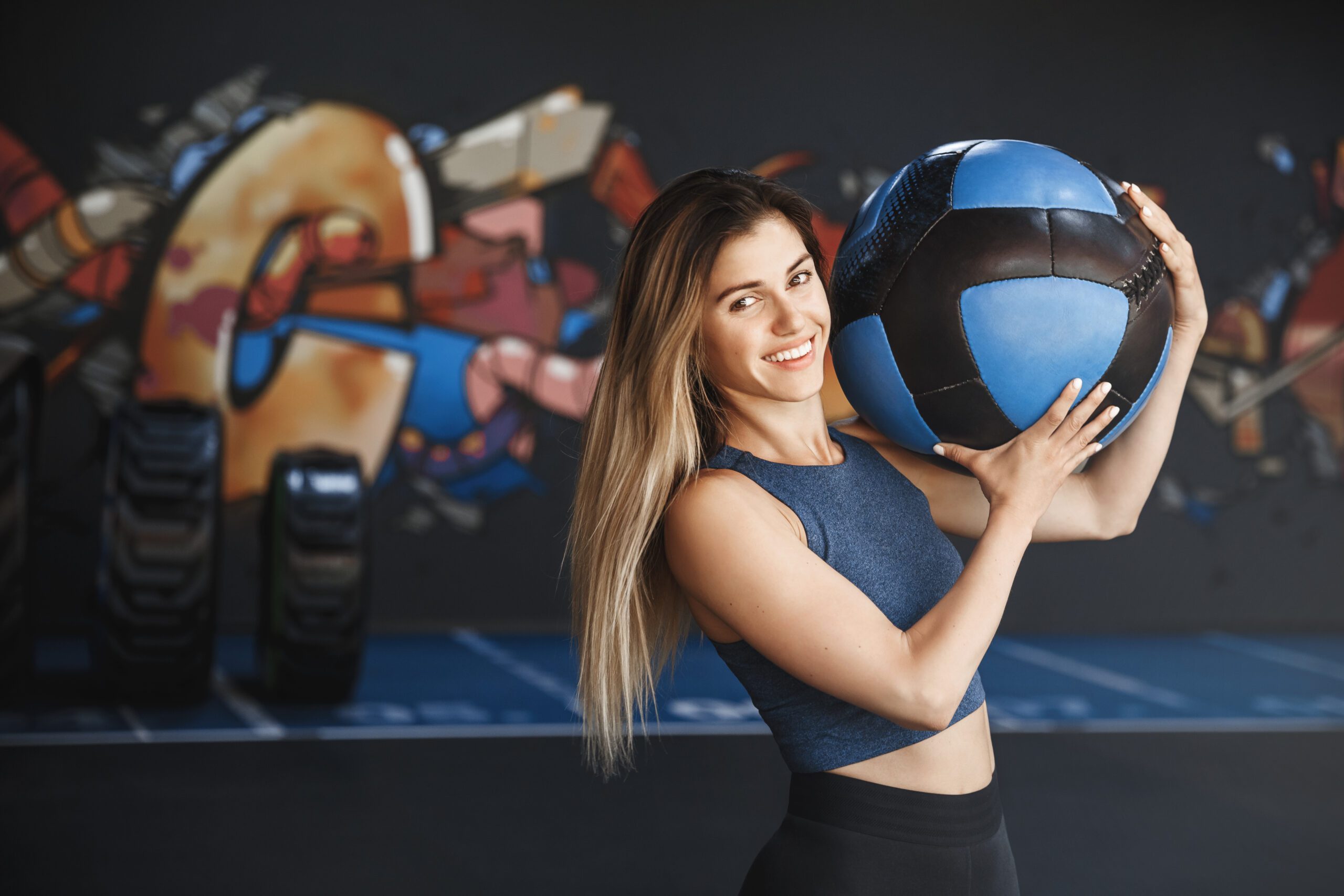As the landscape of athletics continues to evolve, the importance of tailored training programs for different sports has never been more apparent. A “one size fits all” approach to training is rarely effective when it comes to maximizing performance, preventing injuries, and enhancing overall physical capabilities. Customizing workout regimes to specific sports requires understanding the unique physical demands, energy systems, and skills required for each discipline. In this comprehensive guide, we will explore the fundamentals of creating customized workouts for various sports, the benefits of specialized training, and how to optimize your performance through targeted exercises.
1. The Importance of Customized Workouts
Why Tailored Training Matters
A. Individual Physical Demands:
- Sport-Specific Requirements: Each sport has its unique set of physical demands. For instance, a sprinter requires explosive speed and strength, while a marathon runner focuses on endurance, cardiovascular health, and steadiness. Customized workouts address these variations effectively.
- Targeting Energy Systems: Different sports rely on varied energy systems (aerobic versus anaerobic), requiring specific training adaptations tailored to enhance those systems.
B. Enhanced Performance:
- Skill Development: Custom workouts can focus on improving specific skills relevant to a sport, such as agility, coordination, and flexibility. This enhances performance and helps athletes compete more effectively.
- Maximizing Strength and Conditioning: By addressing the muscles and movement patterns most used in a sport, athletes build strength and endurance that translate directly to improved performance on the field or court.
C. Injury Prevention:
- Reducing Injury Risks: Customized training can help strengthen muscles and joints that are subjected to specific stressors in a sport, thereby reducing injury risks. Athletes can develop a well-rounded fitness profile, preventing imbalances that can lead to injury.
- Recovery Considerations: Tailoring workouts based on an athlete’s recovery needs ensures they return to peak condition without prolonging fatigue or increasing the risk of re-injury.
2. Tailored Workouts for Different Sports
Breaking Down Specific Training Needs
A. Team Sports (Soccer, Basketball, Football):
- Focus on Agility and Speed:
- Drills and Sprints: Incorporate drills that emphasize quick direction changes, acceleration, and deceleration. For instance, shuttle runs and ladder drills enhance agility while build stamina.
- Strength and Power:
- Squats and Plyometrics: Lower-body strength is crucial in team sports. Exercises like squats, deadlifts, and plyometric box jumps can develop the necessary explosive power for jumping and sprinting.
- Endurance Training:
- Interval Training: Implement interval runs to improve cardiovascular fitness efficiently. Such practices simulate game scenarios by alternating between high-intensity bursts and recovery periods.
B. Endurance Sports (Marathon, Triathlon):
- Building Aerobic Capacity:
- Long, Slow Distance Runs (LSD): Base training should include LSD runs to improve aerobic endurance. Incorporate gradual distance increases to build stamina.
- Brick Workouts for Triathlons:
- Combining Disciplines: For triathletes, brick workouts (e.g., bike/run transitions) help improve performance during transitions, necessary for race day efficiency.
- Strength Training:
- Functional Strength: Incorporate strength training focused on core stability and functional movements, using exercises like kettlebell swings, lunges, and planks to improve overall endurance and prevent injuries.
C. Combat Sports (Boxing, Wrestling, Martial Arts):
- Explosive Power and Endurance:
- High-Intensity Interval Training (HIIT): HIIT workouts promote both strength and aerobic conditioning. Exercises can include bag work, shadow boxing, and bodyweight circuits.
- Flexibility and Agility:
- Dynamic Stretching: Emphasize flexibility through dynamic stretching and mobility work as part of the warm-up. This allows athletes to remain agile and reduces the risk of injuries.
- Technical Skill Training:
- Drilling Techniques: Incorporate technical skill training into workout routines. Repeatedly practicing techniques like strikes or holds during conditioning helps develop muscle memory.
3. The Role of Nutrition in Customized Training
Fueling Performance
No training program is complete without a focus on nutrition. Nutrition plays a critical role in supporting training and enhancing performance:
A. Individualized Nutrition Plans:
- Assessing Nutritional Needs: Tailor meal plans to meet the specific caloric and macronutrient requirements based on the energy demands of the sport.
- Timing Nutrition: Timing meals and snacks around workouts is essential to ensure athletes have adequate energy pre-workout and recovery nutrients post-workout.
B. Hydration Strategies:
- Optimal Hydration: Maintaining hydration is crucial for performance. Customized hydration plans that account for exercise duration, intensity, and individual sweat rates can significantly impact an athlete’s performance and recovery.
C. Supplements and Recovery:
- Supplementing Wisely: Depending on the sport, consider recommending supplements like protein powders, branched-chain amino acids (BCAAs), or electrolytes for recovery. However, always prioritize whole foods.
4. Tracking Progress and Adjustments
Monitoring Training Effectiveness
Custom workouts must be continuously evaluated and adjusted based on performance and progression:
A. Periodic Assessments:
- Testing Performance Metrics: Regularly assess performance through timed runs, strength testing, and technique drills to gauge improvements.
- Physical Check-in: Monitor physical health and well-being, adjusting training loads as necessary to prevent overtraining.
B. Incorporating Feedback:
- Athlete’s Input: Encourage athletes to provide feedback on their workout effectiveness and how they feel physically. This input can inform necessary adjustments to their training program.
- Training Logs: Maintaining a training log helps athletes track progress, identify trends, and spot areas in need of improvement over time.
5. Technology in Customized Training
Leveraging Tech for Optimal Performance
In today’s digital age, technology can significantly enhance customized training programs:
A. Training Apps and Wearables:
- Fitness Trackers: Use fitness trackers to monitor heart rate, training intensity, and overall activity levels. This data provides valuable insights into progress and areas for improvement.
- Workout Apps: Various apps allow users to customize their workout routines and track their progress in real time, helping to stay motivated and accountable.
B. Video Analysis:
- Performance Improvement: Utilize video analysis software to review technique in sports like swimming or sprinting. This entails recording practice sessions and providing detailed feedback, leading to targeted adjustments for performance optimization.
- Skill Development: Coaches can use video to break down complex skills, allowing for focused practice and refinement.
6. Conclusion
The art of training goes beyond just workouts; it’s a comprehensive approach tailored to the specific demands of each sport, personalized to the needs of individual athletes. Custom workouts not only optimize performance but also foster a deeper connection with the sport, helping athletes achieve their fullest potential. By understanding the unique requirements of various sports, incorporating appropriate nutrition, and utilizing modern technology, athletes can create effective training regimes that lead to success.
At myeventartist.com, we are here to support your journey with high-quality logo design services and branding solutions tailored to your event needs. Explore our available print-ready vector logo designs, customizable fonts, and more at https://myeventartist.com/shop/. Whether you are organizing a sporting event or seeking custom logos for your apparel business, we have the resources to elevate your brand.
Celebrate the art of training, embrace the journey, and engage in the exciting world of sports!
Keywords: customized workouts, sports training, athlete performance, event branding, nutrition for athletes, training technology.
#CustomizedWorkouts, #SportsTraining, #AthletePerformance, #EventBranding, #NutritionForAthletes, #TrainingTechnology



Leave a Reply